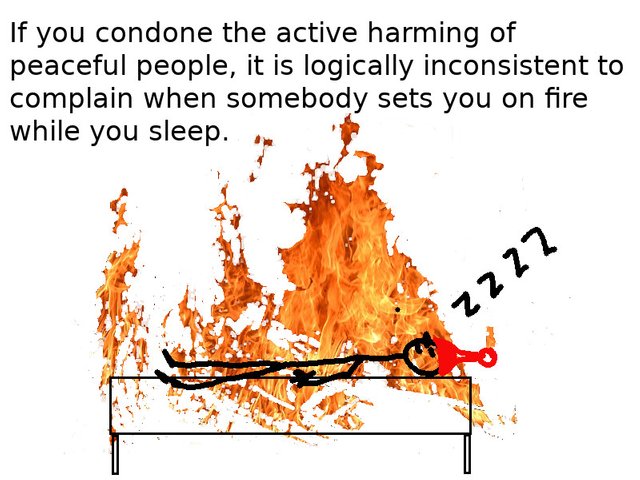First Steps to Productive Conversation about Government

An Open Question for Steemians
Is there a simple way to state what you feel about a social or political situation that you want to protect or change? The idea is to describe the situation in the absolute simplest, and most real terms so that you can discuss it with people who are likely to disagree with you. By keeping it simple, you can avoid the time and effort that is wasted by arguing high-level arguments when you disagree on how the arguments should be evaluated.
I have some ideas about how a person can state the problem to make their case in a way that could, theoretically, start a productive conversation. I'll show some examples. Please review some examples and add a comment about an issue that is important to you.
Part I: Tips

I think this is a picture of two people arguing, but it might ultimately end up like that scene from Brokeback Mountain. Picture from pixabay]
Tip 1: Avoid Asserting Debatable Things to be Facts
People whole-heartedly believe things to be true that a large group of other people do not accept as true. If you want a conversation to have even a remote chance of success, avoid starting with an intractable philosophical debate, even if you are 100% convinced of the truth of your statement. Instead, start with a simpler point where there is some hope for agreement.
[person A] Corporate profits are evil!
[person B] God says I own myself, so you can't legitimately take my money in the form of tax.

In a debate, language matters (p.s., that's a finger). Picture from pixabay
When you are starting a conversation that could be highly contentious, language matters. Look out for constructions that contain conjugations of the verb "to be." Person A here used the word "are," and the whole statement appears to be a assertion of fact. Regardless of how convinced you are of the fact, the other person is prone to reject it (assuming the person is of an opposing political orientation).
Person B above brings in religion and religious interpretation. Regardless of whether the statement about God's will is factual, we know that there is tremendous lack of agreement on religious beliefs. Even people of the same religion disagree on important matters.
Try rephrasing to something that seems more real to the OTHER person (not to you!).
[person A] I feel like workers like me are being exploited by business owners in terms of pay and working conditions.
[person B] When governments control my behavior through regulation or take my money in the form of taxes, I feel like I have been violated... perhaps how you might feel if somebody stole from you.
There are still problems with the revised statements, but we are starting to get more real by each person honestly describing how they feel when they perceive that someone has done them wrong.

Keep it simple. Picture from pixabay
Example 2: Strive to Remove Subjective Evaluations
In the revised example above, person A says "... are being exploited." There is that conjugation of the verb "to be" again, and we also see another word that is likely to be interpreted as a subjective evaluation (subjective opinion, like preferring one type of music to another). To detect exploitation, you probably have to have a grand theory about what is the correct way to do things, and then you have to detect a variation from that point. A person with vastly different political views is likely to ignore this.
The same goes for the revised statement from person B above. That person says "...have been violated." Again, a person with an opposite political view is likely to see "violated" as depending on a grand theory about how things should be, so let's try to make things simpler and more real.
[person A] I feel bad when I work all week and my paycheck is so small compared to what other people at my company are paid.
[person B] I feel constrained by government regulations and taxes.
Wow! What a boring conversation! Maybe it is boring, but we removed lots of contentious suppositions and have a lot less to fight over! There is still a subjective evaluation above ("small"), but even though the two people are imperfect, they have made two statements that have already been productive in narrowing the scope of the discussion.

Picture from pixabay
Common Ground
It would be nice if people mutually understood what is and is not common ground among people of various political orientations. The common ground would be a starting point for the next major step, which is two people putting their heads together to find ways to address problems without stepping on the other person (or without one group stepping on the other).
Some possible common ground (yes, it is a small amount of ground):
- We agree to avoid doing things against the other person's will (this applies to all participants, whether it is two people in a room or two groups of people).
- Because we do not have a mutually agreed upon referee, let's try to accept the victim's definition of harm for the purpose of refraining from any behavior that goes against the other person's will.
- Let's acknowledge that one group of people can almost always benefit financially by using a vastly superior force to compel another group of people to work or do things against their will, but we already agreed to not do such things (note that this definition could apply to governments against the governed, capitalists against workers, rebels against another group, or any one group against another; we don't need to quibble over those specifics).
Positive Obligations, An example starting point for discussion
At this point, I see a potential area of dispute. Even though participants in the discussion might agree to the common ground above, people might want an additional feature related to positive obligations. The common aground above is mostly about prohibition of actively doing something that HARMS another person against that person's will. Some people believe that others have a positive obligation to actively HELP others. If there is dispute on that point, then that is a potential starting point of productive conversation (because it is inefficient to try to solve a problem as a group when there are conflicting goals).

Let's assume that people legitimately agree on the common ground principles above. This means that I prefer that someone refrains from actively harming me against my will, and I get to define what constitutes harm for the purpose of getting the other person to stop the behavior that harms me (like punching me). If I reject that common ground, then logically, I would not have grounds to complain if somebody sets me on fire while I'm sleeping.
My view is that if we really endorse the common ground above, it would be contradictory to simultaneously compel a person to help me (financially or through labor) against that person's will. It would be nice for people to help me when I'm in trouble, but it is a different situation if I am using force (or indirect force through the government) to compel somebody to help me against their will. I don't see how to rationally endorse positive obligations, but it might be helpful to work through this issue if someone holds a belief in the legitimacy of positive obligation (let me know in the comments).
Up Next in Part II:
... looking for solutions that are consistent with everyone's interests and needs.
About This Blog and This Post
This post is an example of finding ways to communicate productively so that we can have a chance to reach a mutual understanding and agree to not harm peaceful people. I drew the stick figure with a public domain fire image from pixabay.com. My drawing is public domain.
Please resteem! There is more content coming, so follow me! https://steemit.com/@cnacws.
thx
Thank you for your sharing, I love it @cnacws ♫